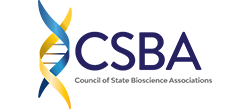Vero will be honored as an “Innovative Supplier” at Premier’s Annual Breakthroughs Conference and Exhibition (BREAKTHROUGHS 2023) taking place June 20-22 in Nashville, TN
June 14, 2023 – Atlanta, GA – VERO Biotech Inc., a commercial-stage healthcare business dedicated to neonatal intensive care and the acute care hospital community, today announced that it will be honored during Premier, Inc.’s annual supplier Innovation Celebration at the 2023 Breakthroughs Conference and Exhibition.
VERO Biotech’s GENOSYL® Delivery System (DS) will be recognized as a “Technological Breakthrough.” VERO Biotech ’s GENOSYL® DS – the first tankless nitric oxide delivery system approved by the FDA – will be one of only seven innovations honored during Premier’s supplier Innovation Celebration, which recognizes groundbreaking healthcare technologies that have been launched throughout the year and the ways these products are helping to improve the health of communities.
“We are honored to receive this recognition from Premier. We are deeply committed to continued innovation so that we may better serve patients, respiratory therapists, and healthcare providers.” said Brent V. Furse, CEO and President, VERO Biotech.
Premier is a leading healthcare improvement company, uniting an alliance of approximately 4,400 U.S. hospitals and 250,000 other providers to transform healthcare. With integrated data and analytics, collaboratives, supply chain solutions, consulting and other services, Premier enables better care and outcomes at a lower cost.
GENOSYL DS is the first tankless inhaled nitric oxide delivery system approved by the U.S. Food and Drug Administration (FDA). Inhaled Nitric Oxide dilates pulmonary blood vessels and may be used to improve oxygenation in neonates with hypoxic respiratory failure and pulmonary hypertension. Unlike tank-based systems, GENOSYL DS generates and delivers iNO at the bedside using a small disposable cassette. This eliminates the need for hospitals to manage large, cumbersome tanks, helps to simplify clinical workflow, and streamlines patient care.
About GENOSYL®
Indication
GENOSYL (nitric oxide) gas, for inhalation, is indicated to improve oxygenation and reduce the need for extracorporeal membrane oxygenation in term and near-term (>34 weeks gestation) neonates with hypoxic respiratory failure associated with clinical or echocardiographic evidence of pulmonary hypertension in conjunction with ventilatory support and other appropriate agents.
Important Safety Information
· GENOSYLis contraindicated in the treatment of neonates dependent on right-to-left shunting of blood.
· Abrupt discontinuation of GENOSYL (nitric oxide) gas, for inhalation may lead to worsening oxygenation and increasing pulmonary artery pressure.
· Methemoglobin levels in the blood increase with the dose of nitric oxide; following discontinuation or reduction of nitric oxide, methemoglobin levels return to baseline over a period of hours.
· Methemoglobin, NO2, and PaO2 should be monitored during nitric oxide administration.
· In patients with pre-existing left ventricular dysfunction, GENOSYL may increase pulmonary capillary wedge pressure leading to pulmonary edema.
· The most common adverse reaction is hypotension.
· Nitric oxide donor compounds may have an additive effect with GENOSYL on the risk of developing methemoglobinemia.
· GENOSYL must be administered using a calibrated GENOSYL Delivery System. Only validated ventilator systems or nasal cannulas should be used in conjunction with GENOSYL.
About GENOSYL ® DS
GENOSYL DS is a tankless system engineered with redundant backup features that delivers a constant concentration of inhaled nitric oxide gas to patients with an easy-to-use interface and portability features. This proprietary delivery system eliminates the need for large nitric oxide tanks and the associated logistical burden. GENOSYL DS recently received FDA approval for its innovative dual-cassette design and secondary adaptive sensor technology to further optimize patient care.
About VERO Biotech
VERO Biotech Inc. is a privately held company headquartered in Atlanta, Georgia focused on saving lives, alleviating suffering, and improving health economics in the neonatal intensive care and the acute care hospital communities.
Forward Looking Statements
This press release and any statements of representatives of VERO Biotech Inc. related thereto that are not historical in nature contain, or may contain, among other things, certain “forward-looking statements” within the meaning of the Private Securities Litigation Reform Act of 1995. These forward-looking statements may include, without limitation, statements with respect to VERO Biotech’s plans, objectives, projections, expectations and intentions and other statements identified by words such as “projects,” “may,” “will,” “could,” “would,” “should,” “believes,” “expects,” “anticipates,” “estimates,” “seeks,” “intends,” “plans,” “potential” or similar expressions, including statements with respect to the potential benefits, advantages or market opportunity of the products. These statements are based upon the current beliefs and expectations of VERO Biotech’s management and are subject to significant risks and uncertainties. Actual results may differ significantly from those set forth in the forward-looking statements. These forward-looking statements involve certain risks and uncertainties that are subject to change based on various risk factors (many of which are beyond the control of VERO Biotech).
For information, please visit www.vero-biotech.com or contact Ziad Mohamed at contactus@vero-biotech.com .

P: 404.221.0617
Fax: 404.448.3982
Email: admin@galifesciences.org
Address: 8607 Roberts Drive, Suite 250, Atlanta, GA 30350


